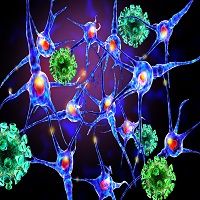Article
Stem Cell Treatment Seen for MS
Author(s):
Some patients with multiple sclerosis could be treated with stem cells, researchers report.

Patients with multiple sclerosis could be treated with stem cells, researchers report.
When particular parameters are met, including patient selection, consideration of reproducibility, and the use of the appropriate conditioning agents, hematopoietic stem cell (HSC) transplantation may be remarkably beneficial for patients with multiple sclerosis (MS), according to the results of a study published in Stem Cell Research & Therapy on January 16, 2016. The study was conducted by Maha M. Bakhuraysah, of Monash University in Prahran, Australia, and colleagues.
The authors say, “Among the most promising strategies used in regenerative medicine, hematopoietic stem cell transplantation (HSCT) prevails as an excellent but controversial therapeutic regime to limit the deleterious pathology following an autoimmune attack.”
HSCT was first used as a treatment for MS in 1995.
Now, scientists have identified two types of HSC cells: long-term (LT-HSC) and short-term (ST-HSC). LT-HSCs, according to the researchers, “have the ability to self renew and provide all hematopoietic lineages during the life of an individual.”
Selection techniques for HSCs are classified as either antibody-based or nonantibody-based.
According to the researchers, “HSCT was clinically pursued in MS based on strong data obtained from mouse models of autoimmune encephalomyelitis investigating the outcome of the therapy.” The early experiments revealed that HSCT was most effective in the early stages of the disease. More recently, the authors report, “several MS patients were treated with auto-HSCT after exposure to high doses of immunosuppressive drugs by using different procedures of HSC harvesting and conditioning regimes.”
The potential positive effects of HSCT must be weighed against the possibility of complications.
The authors say, “Several studies have shown the effectiveness of using HSCT for young patients with highly aggressive, malignant forms of MS.”
These types of MS are rare, but HSCT is a treatment option “due to the ability of HSCT to modulate autoimmunity without the requirement to eradicate the full patient’s hematopoietic cells,” according to the researchers.
The authors say that, for HSCT to be a therapeutic option, there need to be “international multicenter, randomized clinical trials of HSCT compared with the best standard of care treatment, MS patient selection in studies, and long-term follow-up studies of patients from international registries.”
The existing studies have mostly be observational and did not have appropriate control groups, lacked long-term follow-up, and were performed at a single institution.





